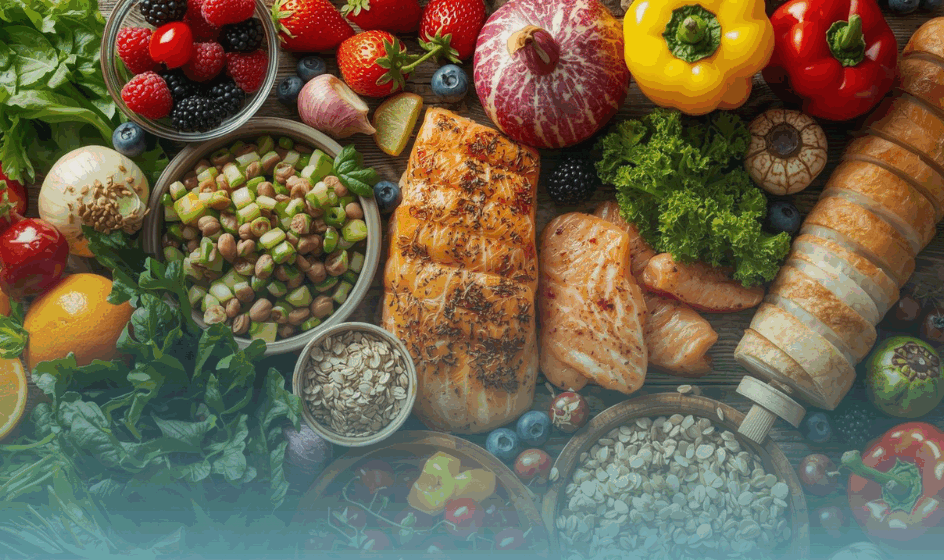
Supporting Health, Independence & Quality of Life for Older Adults in the UK
As we grow older, our bodies go through natural changes, from slower metabolism and reduced muscle mass to shifts in appetite and digestion. These changes make good nutrition more important than ever. In the UK, where over 11 million people are aged 65 and over, ensuring older adults eat well is not just a personal concern, it’s a public health priority.
Whether you’re an older adult or a carer, understanding the role of nutrition in later life and why good nutrition matters in healthy aging, you can help prevent illness, promote independence, and improve overall well-being.
Why Nutrition Matters More with Age
Eating well in later years supports:
- Muscle strength & bone health – Protein, calcium, and vitamin D help reduce the risk of falls and fractures.
- Immune function – Nutrients like vitamins A, C, D, and zinc help fight infections and aid recovery.
- Chronic condition management – A balanced diet can help control diabetes, heart disease, and high blood pressure.
- Cognitive health – Omega-3s, antioxidants, and B vitamins support brain function and may reduce dementia risk.
- Mental wellbeing – Eating regularly and enjoying meals can improve mood and reduce feelings of isolation.
Common Challenges for Older Adults
Many older people face barriers to eating well, including:
- Reduced appetite or changes in taste
- Difficulty chewing or swallowing
- Social isolation or bereavement
- Confusion around dietary advice
These challenges can lead to malnutrition, which affects around 1 in 10 people over 65 in the UK.

Practical Tips for Eating Well
Here are some simple, effective ways to support good nutrition in later life:
Eat Little and Often
If large meals are difficult, try smaller, frequent meals and snacks that are high in energy and protein.
Make Meals Tempting
Use herbs and spices to enhance flavour. Vary colours and textures to make food more appealing.
Stay Hydrated
Aim for 6–8 glasses of fluid daily. Tea, coffee, milk, and fruit juice all count, but limit alcohol.
Include Key Nutrients
- Protein: Eggs, fish, poultry, pulses, beans
- Calcium & Vitamin D: Dairy, fortified plant milks, leafy greens
- Fibre: Whole grains, fruits, vegetables
- Healthy fats: Oily fish, nuts, seeds, olive oil
Use Fortified Foods and Supplements
Vitamin D supplements are recommended for everyone over 65 in the UK, especially during winter months.
Plan and Budget Wisely
Cooking at home, buying supermarket own brands, and freezing leftovers can help keep costs down.
UK Resources and Support
There are several trusted organisations offering help and guidance:
- Age UK (LINK: https://www.ageuk.org.uk/information-advice/health-wellbeing/healthy-eating/) – Free advice on healthy eating and local support services.
- British Nutrition Foundation (LINK: https://www.nutrition.org.uk/nutrition-for/older-people/ ) – Detailed nutrition advice for older adults.
- Malnutrition Task Force (LINK: https://www.malnutritiontaskforce.org.uk/ ) – Campaigns and practical guides to prevent malnutrition.
- NHS Dietetic Services – Local support including home visits and care home advice.
Positive Outcomes of Good Nutrition
When older adults eat well, the benefits are profound:
- Fewer GP visits and hospital admissions
- Faster recovery from illness or surgery
- Improved mood and energy levels
- Greater independence and reduced need for care
- Enhanced social engagement and enjoyment of life
Final Thoughts
Good nutrition is not a luxury; it’s a necessity for ageing well. With the right support, older adults can enjoy food that nourishes both body and soul. Whether you’re caring for a loved one or planning your own healthy ageing journey, small changes can make a big difference.
Our partners


















































